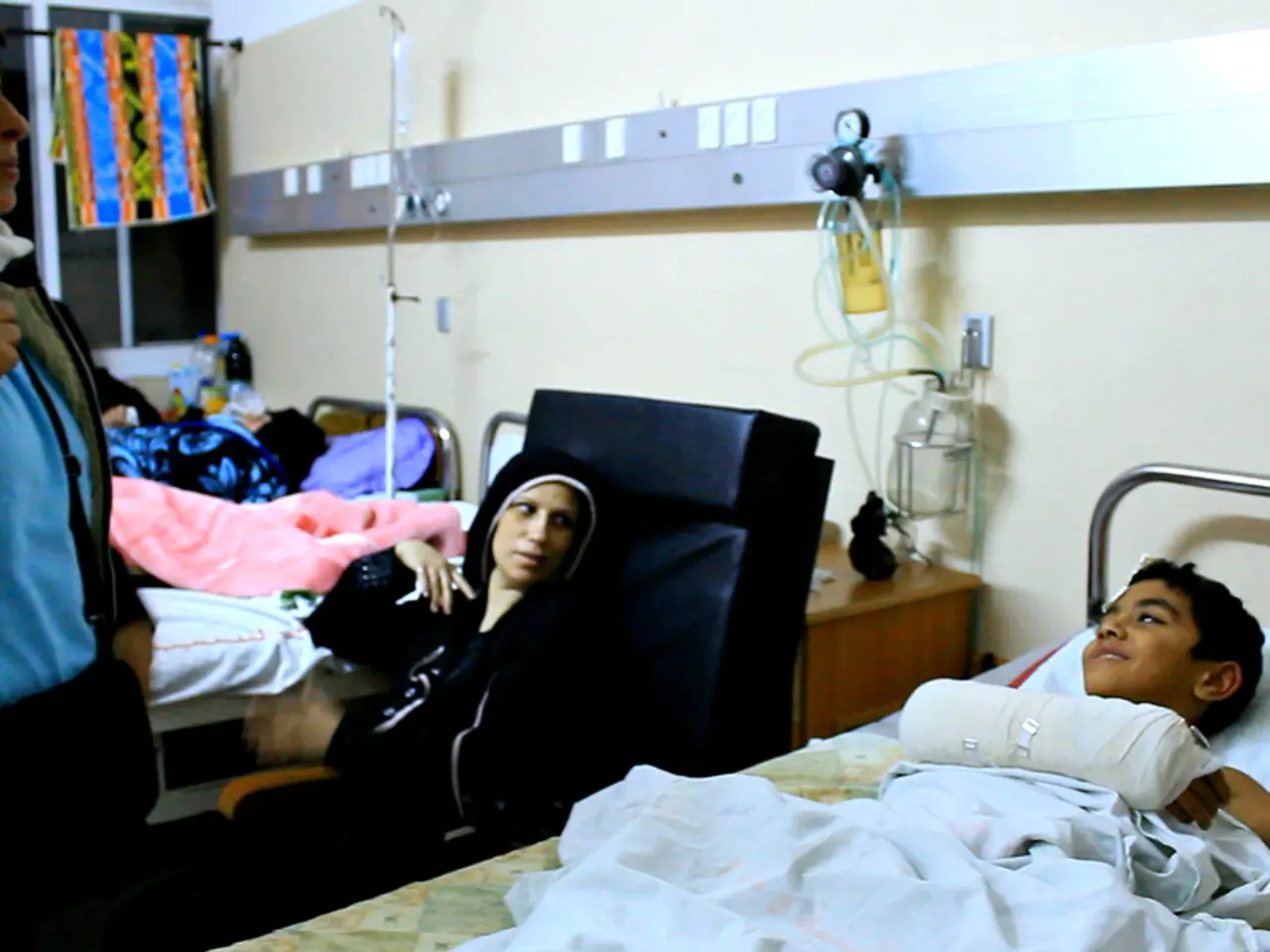Nursing home social seclusion concerns raised by cabinet member for family affairs
In the ongoing battle against COVID-19, German authorities are navigating a delicate balance between infection control and the psychosocial needs of care home residents.
Franziska Giffey, the Federal Family Minister, has expressed her concern about the significant social isolation faced by care home residents, particularly those with dementia or those nearing the end of their lives. This isolation has been a byproduct of the protective measures implemented to prevent the spread of the virus.
Visiting care homes in Germany requires mask use and often proof of a negative COVID-19 test or immunity, with regional variations based on hospitalization rates. Each federal state may impose stricter rules depending on local circumstances, with contact restrictions and visitation rules becoming tighter if hospital admissions rise above specific thresholds.
These restrictions, while necessary for protecting residents from severe illness, have had a profound impact on the mental well-being of care home residents. Studies have shown that visiting bans or severe limitations have caused distress for both residents and staff, as many patients could not be accompanied by family during critical moments. The lack of family contact has affected residents’ mental well-being, exacerbating feelings of loneliness and confusion in people with dementia.
Efforts are being made to mitigate this isolation. Some care homes and organizations have implemented virtual visits or controlled in-person visits under strict hygiene measures. However, the tension remains between infection control and the psychosocial needs of care home residents.
Giffey has urged citizens to consider their actions before visiting elderly relatives during the holidays, to prevent the spread of COVID-19. She emphasizes the need to ensure that people who are dying are not alone and that relatives can say goodbye.
In a separate concern, Giffey has expressed worry about an increase in domestic violence during the corona lockdown over the Christmas holidays. She notes that there is a significantly larger dark figure of domestic violence cases that go unreported. The helpline "Violence against Women" currently handles up to 480 consultations per week on domestic violence, a stark reminder of the prevalence of this issue.
Despite the challenges, Giffey has warned against closing care homes to visitors during the pandemic. Unlike the first lockdown in spring, schools and kindergartens are currently open. This decision reflects a recognition of the importance of avoiding social isolation for care home residents, particularly those with dementia.
This reflects an ongoing challenge in German pandemic policy to safeguard vulnerable populations physically while addressing their mental and emotional health. It is a delicate balance that requires continuous monitoring and adjustment to ensure the best possible outcome for all involved.
[1] Source [2] Source [3] Source [4] Source
- The mental health of care home residents is significantly impacted by the visiting restrictions imposed due to COVID-19, as evidenced by studies showing distress among both residents and staff when family visits are not possible.
- Amidst concerns over family health and wellness, German Federal Family Minister, Franziska Giffey, has urged citizens to reconsider visiting elderly relatives during holidays, to prevent the spread of COVID-19 while ensuring that dying individuals are not alone and families can say goodbye.
- In the midst of addressing the physical health concerns posed by COVID-19, Giffey has also expressed worry about an increase in domestic violence during lockdowns, noting the significant unreported cases and emphasizing the need for continued support for affected families and victims, particularly during the holiday season.




